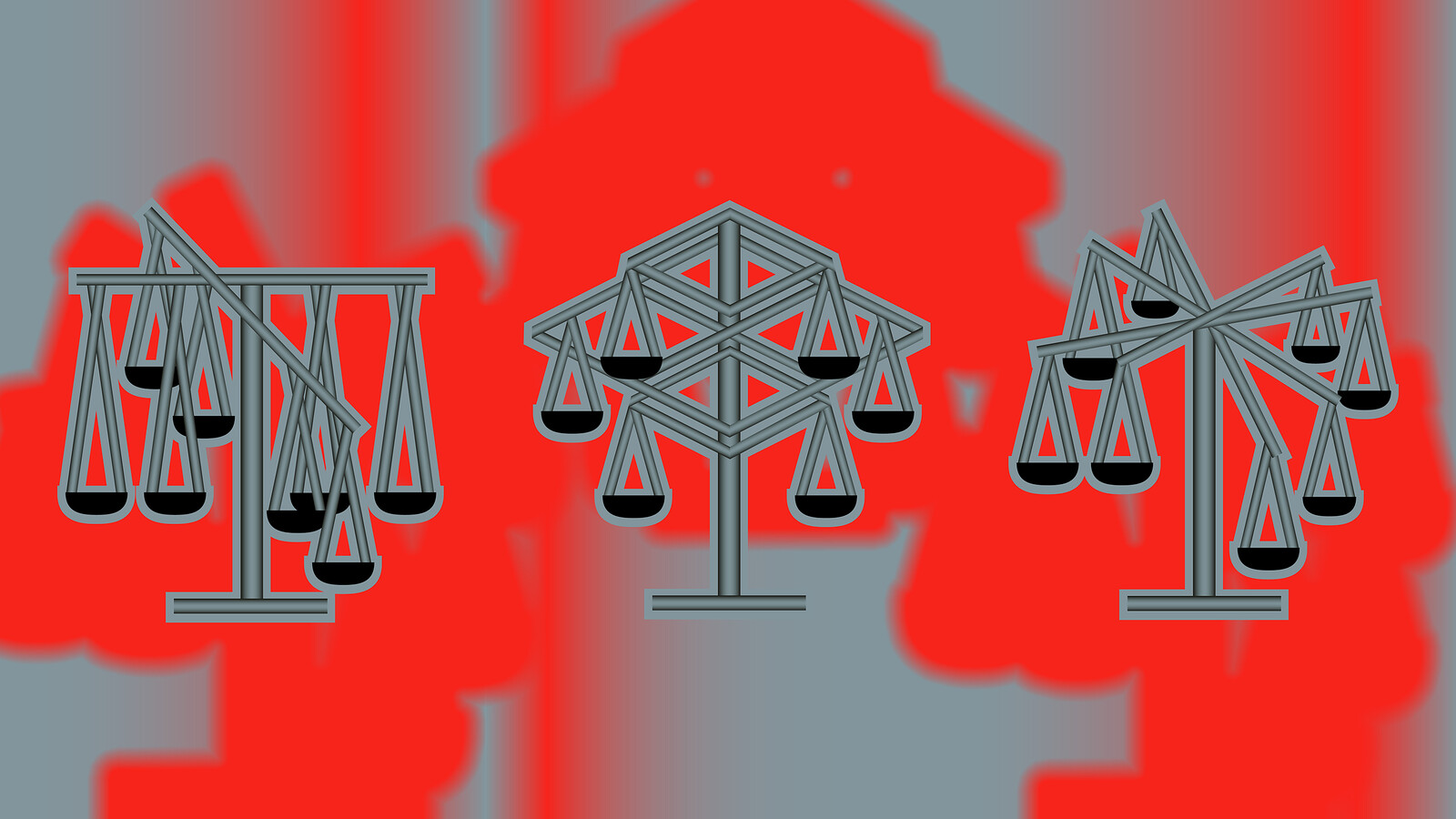Künstlerhaus
Hellbrunner Straße 3
5020 Salzburg
Austria
Hours: Tuesday–Sunday 12–7pm
T +43 662 8422940
F +43 662 84229422
office@salzburger-kunstverein.at
The 2025 program at Salzburger Kunstverein, organized under the framework of Picturing Justice, examines the practice of justice as a realm of inherent dissonance. Through the visual metaphor of scales with multiple pans and points of balance, the program aims to emphasize plurality and complexity of perspectives over the binary of “right” versus “wrong” while considering contemporary struggles and debates on social, ecological, and infrastructural injustice.
The program is conceived against the backdrop of the interpretational chaos that is prevalent within the digital public sphere, a contentious space which is often experienced via screens. Behind such hermetic surfaces, judgment is swift and information becomes fragmented, distorted, and quickly weaponized. Artists and curators invited to contribute to the program reflect on how different perceptions of justice intersect with broader philosophical debates on subjectivity, truth, evidence, and responsibility. The process of “picturing” implies an exercise in imagination as much as an effort to understand and rethink the systems of representation that enforce the matrix of judgment and valuation that everyone is a part of.
March 14–May 4
Dana Kavelina / Studio
New work by Dana Kavelina articulates the realities of forced conscription in Ukraine, presenting interconnected stories of human and animal exploitation in a stop-motion film.
New Mineral Collective / Grand Hall
Through repurposing the form and function of geological tools, New Mineral Collective proposes “counter-prospecting tools” to shift the narrative from exploitation of resources towards conservation and healing.
Presented in conjunction with a related project at Mercer Union in Toronto.
May 16–July 13
Tania Gheerbrant / Studio
New work from the series Fleurs de l’histoire delves into the anti-psychiatric patient collectives of the 1970s, aiming to illuminate the oppressive systems within both medical and penal institutions. Gheerbrant explores the parallels between the historical persecution of witches and the modern treatment of psychiatric patients, following the provocative ideas of psychiatrist Thomas Szasz.
In collaboration with Frac Bretagne.
Mikołaj Sobczak / Grand Hall
At the center of Mikołaj Sobczak’s artistic practice is the depiction of alternative historical narratives; in his paintings and assemblages he inserts protagonists from queer and countercultural emancipatory movements. For this exhibition, Sobczak delves into the emergence of modern forms of fascism alongside the growing popularity of esotericism.
July 25–September 14
Laila Shawa / Studio
This presentation marks the first Austrian exhibition of pioneering Palestinian artist Laila Shawa (1940–2022), who attended Oskar Kokoschka’s School of Seeing in Salzburg between 1960 and 1963. Curated by Jakub Gawkowski, the exhibition delves into Shawa’s cross-cultural visual language marked by erratic forms and intense colors that challenges traditional narratives of the West and the Rest through what has been termed “Islamo-pop.”
In collaboration with TRAFO Trafostacja Sztuki Szczecin.
Esben Weile Kjær / Grand Hall
This exhibition takes the form of a mutable stage, a space where freedom becomes as much a performance and a reality marked by spontaneity and uncertainty. The artist creates a sculptural scenario that platforms ongoing negotiations, challenging visitors to reconsider the notion of nostalgia in relation to the past and the future.
September 19–November 16
The Museum of (Non)Restitution / Studio and Grand Hall
Utilizing the objects from the collection of the Salzburg Museum, the showcase features explorations by Thomas Geiger, Tatiana Lecomte, and Sophie Thun, about how the return of art objects and rights can transform the identities and communities involved. It challenges the traditional view of restitution as simply restoring property rights, prompting visitors to think about the underlying issues of ownership and loss.
Co-produced with Salzburg Museum.
Picturing Justice is conceived by Salzburger Kunstverein’s director-curator Mirela Baciak.

